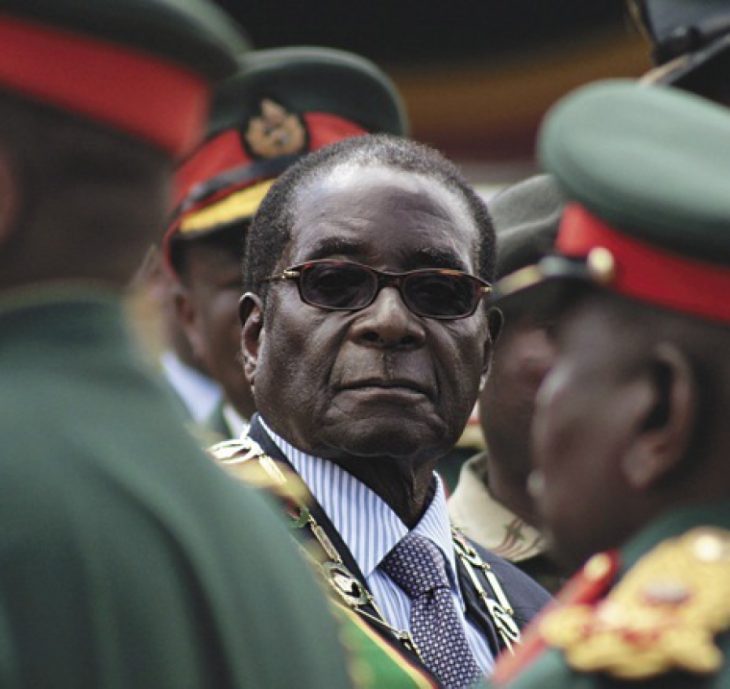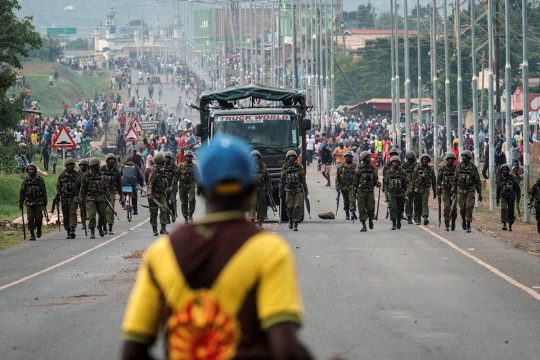In many African countries, as well as Latin American ones (e.g. Colombia) power-sharing is often seen as the peace negotiators’ instrument of choice for conflict resolution. This tendency, however, often places those responsible for past human rights violations in powerful government positions. Transitional justice measures are then introduced under these difficult circumstances. Kenya's and Zimbabwe's experiences demonstrate the devastating effects that power-sharing can have on processes of transitional justice.
Power-sharing can freeze the status-quo, leaving transitional justice vulnerable to neglect and manipulation.
Many practitioners in the field of conflict management believe in the transformative capacities of power-sharing. However, this “solution” to violent crises almost always comes at the expense of transitional justice. The forces that were responsible for previous atrocities remain in power, showing barely any commitment to justice measures. Although the dynamics of power-sharing in Kenya and Zimbabwe turned out differently, examples from both countries show how justice was bitterly denied under the condition of this conflict management mechanism.
In Kenya, the Party of National Unity's (PNU) incumbent president Mwai Kibaki declared his electoral victory, notwithstanding the opposing Orange Democratic Movement's (ODM) claim for electoral fraud. Incited by their leaders both parties' supporters engaged in two months of post-election violence until a settlement was reached on 28 February 2008. In Zimbabwe, the Movement for Democratic Change (MDC) and its leader Morgan Tsvangirai politically threatened president Robert Mugabe's hold on state power. With a violent intimidation campaign directed against MDC supporters, Mugabe managed to force Tsvangirai to withdraw from the presidential race. As the international community pushed for negotiations between the opposing parties, a superficial power-sharing deal was reached on 15 September 2008.
African Union mediation
With regards to transitional justice, Kenya's coalition government agreed on several commissions dealing with the post-election violence and historical injustices. A constitutional review committee was also set up. It seems surprising that a government made up of “perpetrators” would propose such steps at all. Yet this was thanks to a dovetailed pressure from both domestic civil society groups and the African Union mediation team headed by Kofi Annan. The power-sharing partners, in turn, were confident that by working together they could avert any real consequences these vaguely mandated commissions might have had. After all, both conflicting parties shared a rather equal amount of blame for the human rights abuses in the past. In short – both had a mutual vested interest here. Working together was also possible because of Kenya's history of flexible political alliances. This enabled cooperation on issues that touched upon retributive justice targeting both parties. The power-sharing scheme in fact made way for the simple removal of the opposition from the political landscape. In the end, the commissions' recommendations went largely unaddressed, the International Criminal Court's (ICC) investigations were used as a tool for manipulation, and reforms were implemented very reluctantlye
Mugabe's politics of oppression
Zimbabwe, on the other hand, represented much more of a two-blocks-conflict. Mugabe essentially saw the power-sharing deal as a way to get rid of economic sanctions, while keeping his grip on the presidency. As Western leaders continued their support for the MDC, Mugabe's party, the Zimbabwe African National Union – Patriotic Front (ZANU-PF), had the opportunity to frame and thereby delegitimise the MDC as a “puppet of the West”. Additionally, as the Southern African Development Community’s facilitator Thabo Mbeki feared instability in the region, he resorted to pressure MDC negotiators to quickly fix the crisis. Fearing the loss of regional legitimacy, the MDC was thus arm-twisted into agreeing upon bad power-sharing terms. A bad power-sharing agreement seemed better than none. At least, this one would grant them access to state power and potentially a new constitution in the long run. In this position, the MDC could not insist on criminal justice despite having been one of the victims of Mugabe's politics of oppression. While Tsvangirai and human rights groups tentatively proposed a truth and reconciliation commission, they faced stark opposition from ZANU-PF. ZANU-PF also overruled the MDC on many instances when the latter sought to establish a factual record of the violence that had occurred. When Prime Minister Tsvangirai invited the UN Special Rapporteur on Torture to Zimbabwe, he was swiftly refused entry at the airport upon the explicit instructions of the ZANU-PF Minister of Foreign Affairs. The asymmetry of power within the government, and the blame for the preceding human rights abuses mooted any serious transitional justice efforts.
Even though the dynamics of power-sharing were different in Kenya and Zimbabwe, due to the particularities of their respective political and historical contexts, in both cases justice was largely denied as a direct consequence of the power-sharing. The interests of the power-sharing parties were simply at odds with the motivations needed to rigorously implement measures of transitional justice.
It is often claimed that justice itself contributes to promoting transition. These two examples, however, suggest that without a foregone profound political transition, justice efforts are mostly in vain. A power-sharing agreement alone is often a marker for limited, if any, political transition, let alone justice.
Leona Hollasch has recently recieved the prize for best MA thesis of the Leipzig MA Conortium for Global Studies. This article abstracts some of her key findings in her research conducted at the University of Roskilde- Denmark
"This article is the result of a partnership between Justiceinfo.net and Leipzig University's Forum for the Study of the Global Condition, in association with its partner universities in Global Studies. JusticeInfo.net will publish contributed pieces by academics from this network of institutions from around the world, as a consolidate intellectual effort to frame debates about justice and peace, within global and comparative perspectives".






